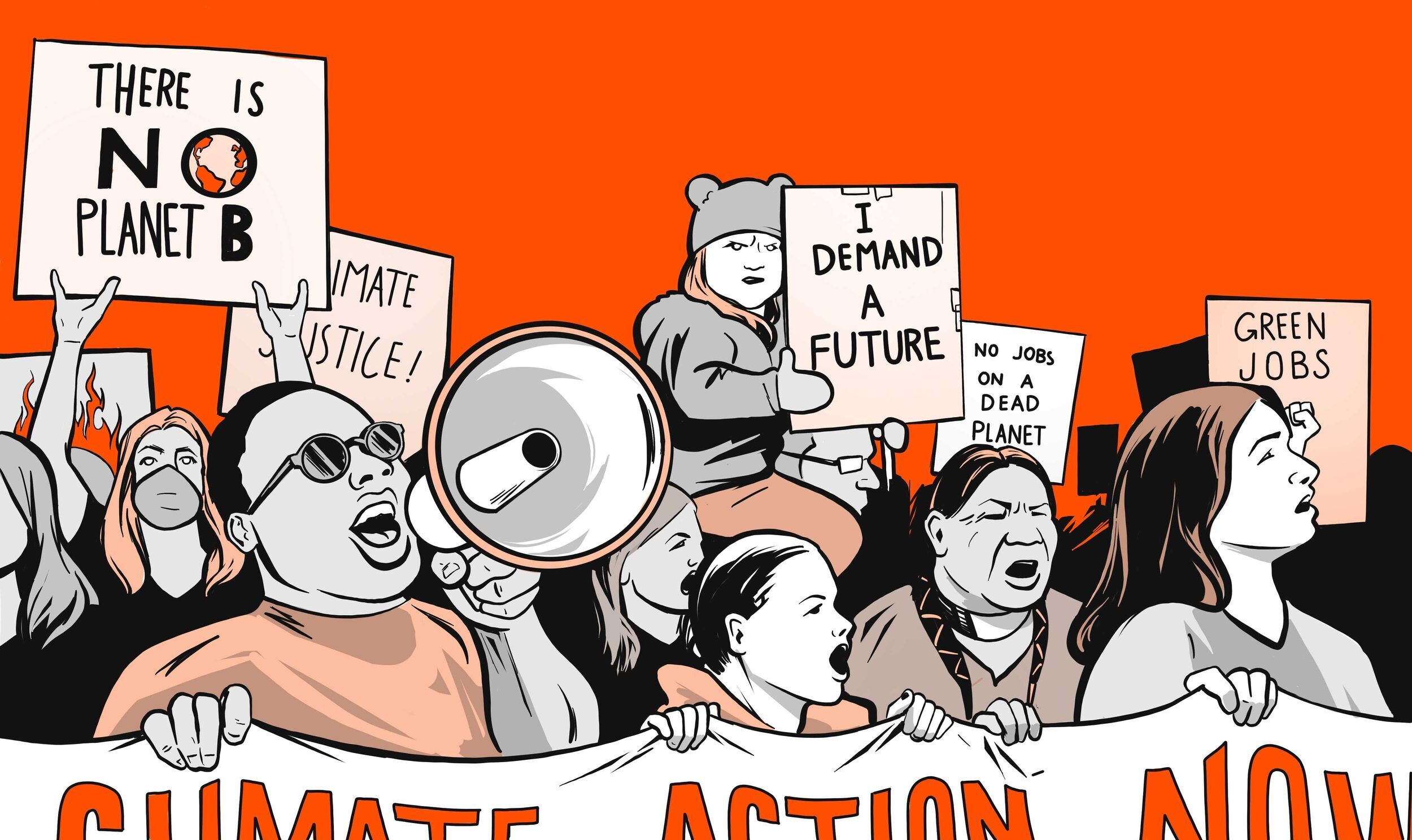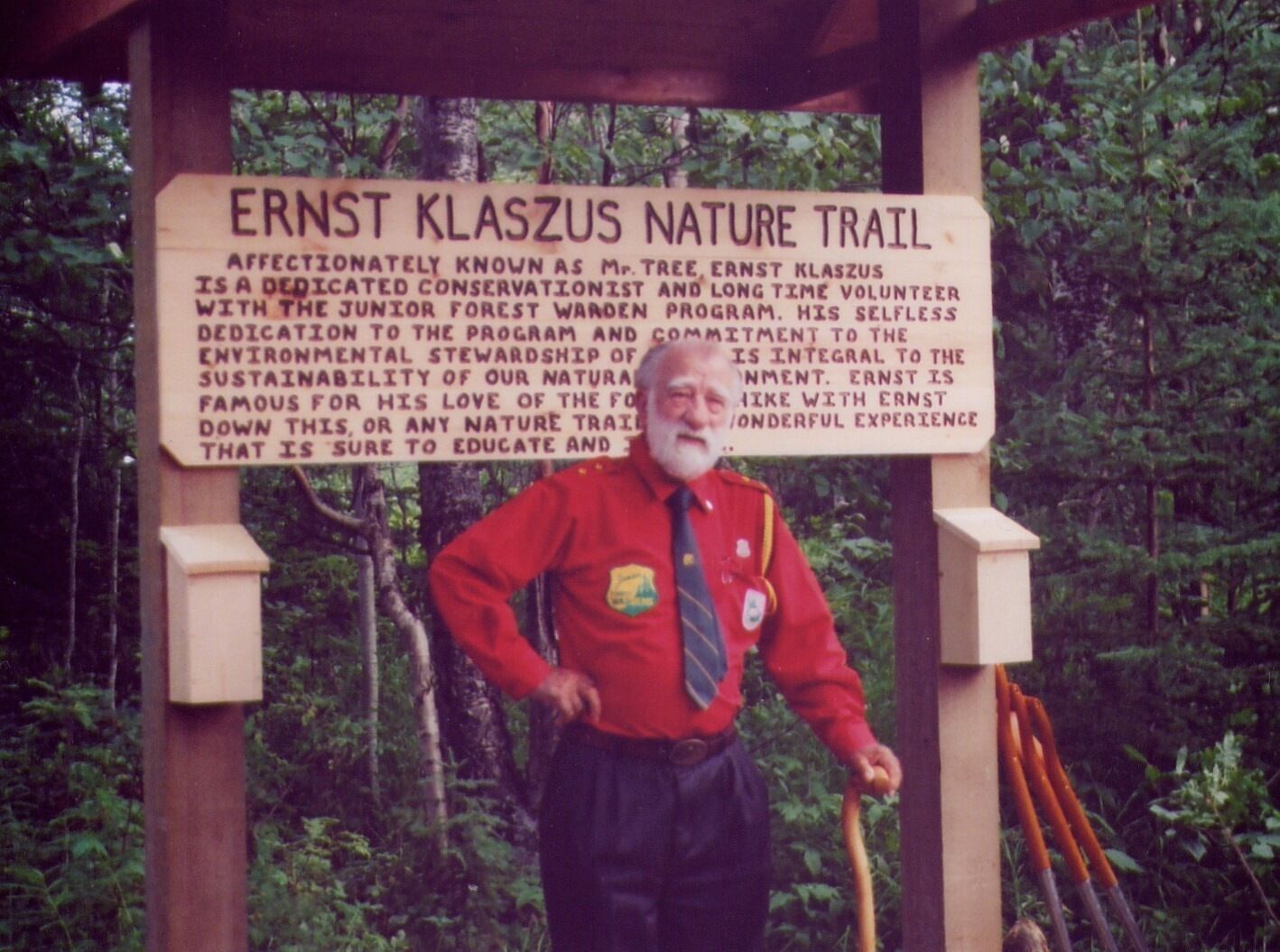
S9 cover illustration by Kyle Simmers.
As the Alberta government rolls out a $30-million "war room" to promote fossil fuels in a time of climate crisis, I'm haunted by something my late grandfather used to share.
A Lutheran pastor and teacher, he became chief warden of the Alberta Junior Forest Wardens (JFW), a forestry youth group. He planted thousands of trees all over Alberta in his lifetime.
He had another regular practice, too: he'd collect scraps of paper that would otherwise be discarded, and turn them into pocket notebooks for JFWs so they could jot down field notes as they explored the forest.
On the back of each little notebook, he published the JFW code, adapted from words by the Victorian writer and social critic John Ruskin: "God has given us the earth for our life. It is a great entail. It belongs as much to those who come after us as to us, and we have no right by anything we do, or neglect to do, to involve them in unnecessary penalties or to deprive them of benefits which are theirs by right.”
I think of that often these days.
I think of my grandfather's legacy of tree-planting and youth education. And then I think of what I'm leaving my own children.

Scientists have warned that we must drastically cut carbon emissions to keep the global temperature rise to 1.5°C, thus limiting the damage of climate change. Despite this knowledge, we're still failing to act.
I feel ill thinking about the world my kids will inherit due to our collective negligence. I still can't bring myself to talk to my kids about the climate crisis and what it will mean for them.
My anxiety is hardly unique. I keep having the same conversation with other Albertans who are experiencing the same sense of climate-related dread.
Alberta, and Calgary in particular, remains deeply invested in denying the realities of the climate crisis. This is reflected in our politics, our economy, our media, and the way we continue to build our sprawling city.
At a time when we should be making climate action our top priority, the Alberta government is doubling down instead on propaganda, working in concert with corporate interests—this, in the name of defending "truth." Meanwhile, Calgary city hall talks a good game on climate action, but fails to follow through.
We are a people in denial.
I don't exempt myself from this. When I look honestly at my own attachments to convenience and comfort, I see that I spend much of my time living in the same climate denial that I'm condemning here. I routinely make needless car trips. I buy things I don't need. I eat too much. As a rule, I try not to think too much about my own destructive patterns of consumption.
Alberta, and Calgary in particular, remains deeply invested in denying the realities of the climate crisis.
But we have a responsibility to think about it, individually and collectively. As Albertans, we have an obligation of care to this place and the wider world.
And when it comes to the climate crisis, journalists have an obligation to portray the situation with context and clarity, as my friend and MRU journalism professor Sean Holman recently argued in his open letter to Canadian journalists in The Tyee (Dear Journalists of Canada: Start Reporting Climate Change as an Emergency).
"I am not recommending journalists become activists," Holman writes. "That isn’t our role, except when promoting and defending the rights and freedoms necessary for a functioning free press. However, we are responsible for ensuring Canadians have the information needed to make the rational and empathetic decisions that are supposed to underpin our political and economic systems, whether that’s at the ballot box or the checkout line."
"And we are further responsible for exposing public and private institutions when they are harming Canadians with their actions or inactions."
That, in a nutshell, will be the focus of this edition of The Sprawl as we look at this issue through a local lens.
There’s another side to this story, and it’s one of hope.
At first I was worried that a climate change edition would be too much of a downer. People are bummed out enough—do I really want to add to the steady stream of depressing climate-related news?
But there's another side to this story, and it's one of hope.
I see it in the local students who are organizing and marching for climate action every Friday at city hall in Calgary, inspired by the 16-year-old Swedish climate activist Greta Thunberg. I see it in people who are asking themselves: how do I act with integrity? I see it in parents who are working through how to talk to their children about the climate crisis, and making changes in their lives based on these conversations.
When I reflect on these things, and when I think of the many trees my grandfather planted throughout Alberta, I realize that something good is growing. It's up to us whether we choose to see it or not.
Jeremy Klaszus is editor-in-chief of The Sprawl.
Become a Sprawl member to support local independent journalism (now in Canadian currency!). We're crowdfunded, ad-free and made in Calgary. Support the Sprawl today!
Support in-depth Calgary journalism.
Sign Me Up!We connect Calgarians with their city through in-depth, curiosity-driven journalism—but can't do this alone! We rely on our readers and listeners to fund our work. Join us by becoming a Sprawl member today!
